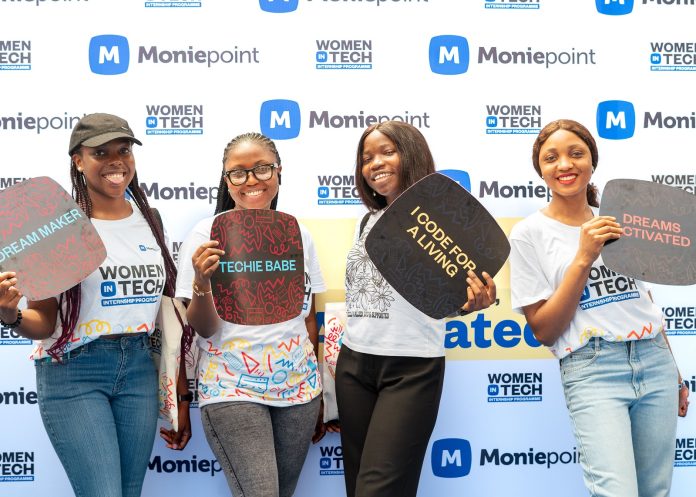By Gbemi Adekambi
An employee is cruising through the career highway and suddenly senses a gap. Maybe it’s a lack of hard skills, or they think it’s time to upgrade the soft skills they already have. Moments like this can be pivotal for your employees, and how your company addresses this could impact overall productivity.
This is where mentorship comes in as a trusted co-pilot in creating the best employee experience for your staff. Mentorship helps people go beyond their current checkpoints, and let’s face it: life is a learning curve. Let’s take a dive into how you can help your employees when they come across this path.
Why you should care about mentorship.
As the Employer Brand Lead at Moniepoint, I’ve seen firsthand how mentorship can turbocharge careers and the trajectory of an organization. From employee engagement to improved culture, here are some reasons why mentorship is something we care about:
Employee development
Mentorship initiatives give employees the opportunity to learn and enhance certain skills. They gain valuable insights that enhance their professional capabilities, and this can have a positive ripple effect on the organization.
Knowledge transfer
Mentorship is an excellent way to foster the transfer of knowledge, best practices, and organizational culture, from experienced employees to newer or less experienced ones. It helps preserve organizational knowledge and ensures continuity, especially during periods of transition or turnover.
Increased engagement
Engaging in mentorship programs and initiatives fosters a sense of belonging and support among employees. At Moniepoint, we also call this membership. They feel more valued and supported, which leads to higher levels of job satisfaction. This, in turn, increases their level of motivation and commitment to the organization.
READ ALSO: Wema Bank shows commitment to Women Empowerment, partners SheCan Nigeria
Leadership development
A strong organization is one where all employees have a certain level of leadership skills, and you can build such skills through mentorship. With mentorship, mentors have the opportunity to hone their coaching, communication, and leadership capabilities. On the other hand, mentees develop leadership qualities through guidance, feedback, and role modelling.
Employee retention and loyalty
Incorporating mentorship programs into the organization strengthens the bond between employees and the company. Through the value they gain, they have a higher commitment to staying long-term with the organization. This reduces turnover rates and their associated costs.
Putting the “M” in Mentorship.
Within an organization, mentorship can take different forms. At Moniepoint, here are a few ways we explore it on our team;
A dedicated L&D team
Moniepoint has a commitment to nurturing talent and fostering growth through its learning and development department. Our employees can always reach out to the team if they’ve identified a skill gap they desire to fill and get linked with the right resources. This extends to every level of our organization.
Open communication system
We also run an open inter-team communication system. This extends beyond our open-door policy, to a system where you can get and receive feedback from anyone, irrespective of level or department. Anyone can collaborate with anyone, getting knowledge and insight to ensure that they can give their best.
Internal hiring system
For employees looking for a path to growth, we make it possible for them to shadow teams outside of their own. This gives them an opportunity to explore other career paths they might be interested in and gives them an opportunity to pivot. For anyone on our team, it’s possible to gain new skills, or switch paths with ease.
Women in Tech Initiative
Each year, Moniepoint selects five women for its Women in Tech initiative, placing them in various departments across the company. These women are then assigned mentors within their designated teams, and they get to learn while executing projects. This initiative not only provides invaluable opportunities for career advancement but also provides a path for these teams to grow as well.
READ ALSO: Access Bank launches French subsidiary, expands global footprint
Give mentorship a shot.
If you want to include mentorship, you need to define the goals and objectives of the mentorship program you have in mind. It helps determine what skills or knowledge gaps the program aims to address and how it aligns with the organization’s overall mission and values.
Then, develop a structured mentorship program with defined roles, responsibilities, and expectations for both mentors and mentees within divisions or departments. In developing this structure, you should also provide guidelines and resources to ensure participants understand their roles and how to maximize the benefits of the programs.
It’s important to put careful consideration into matching mentors and mentees. It could be based on skills, experiences, and career goals. You can consider factors such as personality compatibility, communication styles, and shared interests to facilitate meaningful mentorship relationships.
Diversity and inclusion are also integral aspects of any mentorship program. While incorporating mentorship initiatives, encourage participation from people across different departments, backgrounds, and levels of experience to foster a rich exchange of perspectives and ideas. It is also important to foster a culture of open communication and continuous improvement by encouraging regular feedback and evaluation from both mentors and mentees.
Get it right!
When knowledge flows seamlessly within a team, efficiency skyrockets. Everyone is equipped with the knowledge they need to give their best. Win-win!
If you’d like to work in an organization that prioritizes your growth just as much as its own, we’ve saved you a spot. We’re waiting for you.




